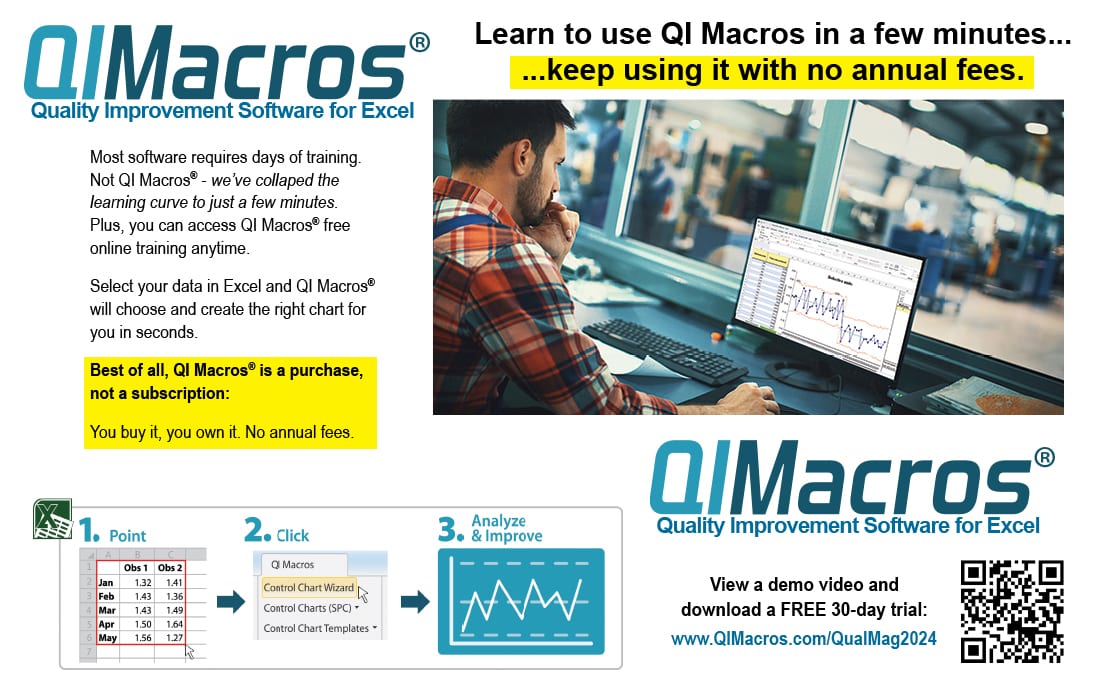Column
Roberto Ciaschi
Column | Roberto Ciaschi
Organizations that prioritize these certifications and effectively navigate the audit process position themselves as leaders in their industries.
The Importance of Regulations in Certification and Audit Standards in Quality Management

In the modern industrial landscape, characterized by rigorous competition and stringent regulatory demands, the importance of adhering to certification and audit standards in quality management cannot be overstated. These standards, such as ISO 9001 and AS9100 (specifically for the aviation, space and defense), serve as the cornerstone for ensuring consistency, reliability, and excellence in products and services. They are not just benchmarks of compliance but are also strategic tools that drive continual improvement, enhance customer trust, and open new business opportunities. Organizations that prioritize these certifications and effectively navigate the audit process position themselves as leaders in their industries, particularly in sectors where precision and safety are paramount.
The audit process is a critical component of maintaining these certifications, and understanding it is essential for success. The first step in audit preparation is to grasp the focus and objectives of the audit, which can vary depending on whether it is a certification audit, a customer audit, or an internal review. A certification audit typically focuses on formal documentation and adherence to industry standards, while a customer audit may emphasize processes directly related to product quality. Understanding these nuances allows organizations to tailor their preparation strategies accordingly, ensuring that they meet or exceed the expectations of the auditors.
A comprehensive approach to audit preparation involves several key steps. First, organizations must possess a deep understanding of the standards and requirements against which they will be audited. This knowledge forms the backbone of the preparation process, enabling teams to align their operations and documentation with the expected criteria. Conducting a pre-audit self-evaluation is another proactive measure that allows organizations to identify and address potential nonconformities before the official audit. This step should include a thorough walk-through of processes and facilities, ensuring that everything is well-organized and ready for scrutiny.
Highlighting strengths and addressing weaknesses is a crucial aspect of this pre-audit evaluation. By recognizing and mitigating weaknesses, organizations can prevent nonconformities, while also ensuring that their strengths are clearly visible to auditors. Reviewing the results of previous audits provides a historical perspective that can guide current preparations and help avoid repeating past mistakes. Additionally, organizing documentation efficiently is vital, as it not only demonstrates compliance but also leaves a positive impression on auditors.
Training participants on proper audit behavior is another key component of successful audit preparation. Employees who interact with auditors should be trained to be polite, objective, and honest in their responses and provide clear and concise information. Establishing a detailed audit schedule and identifying a facilitator to guide the audit process can further ensure smooth execution and timely responses to auditor requests. Finally, conducting a readiness review involving key players and top management helps confirm that all aspects of the audit preparation are in place, reducing the likelihood of surprises during the audit.
Training participants on proper audit behavior is a key component of successful audit preparation.
In this context, tools like the Aerospace Industry Management Maturity (AIMM) framework can play a supportive role. Developed by the International Aerospace Quality Group (IAQG), AIMM aligns closely with ISO 9001 and AS9100 standards, offering organizations a structured approach to quality improvement. While its primary purpose is to assess the maturity of their Quality Management System (QMS), AIMM also helps organizations facilitate audit preparation by providing detailed guidance on implementing requirements. This self-assessment capability allows companies to gauge their certification readiness and identify areas for improvement, making AIMM an invaluable resource for both pre-audit preparation and post-audit continual improvement.
The role of regulations quality management remains foundational to the success of any organization operating in a competitive and regulated industry. By understanding and effectively navigating the audit process, organizations can not only achieve and maintain these critical certifications but also continuously improve their quality management systems. This commitment to excellence not only enhances their standing in the market but also ensures long-term success in an increasingly demanding industrial environment.

